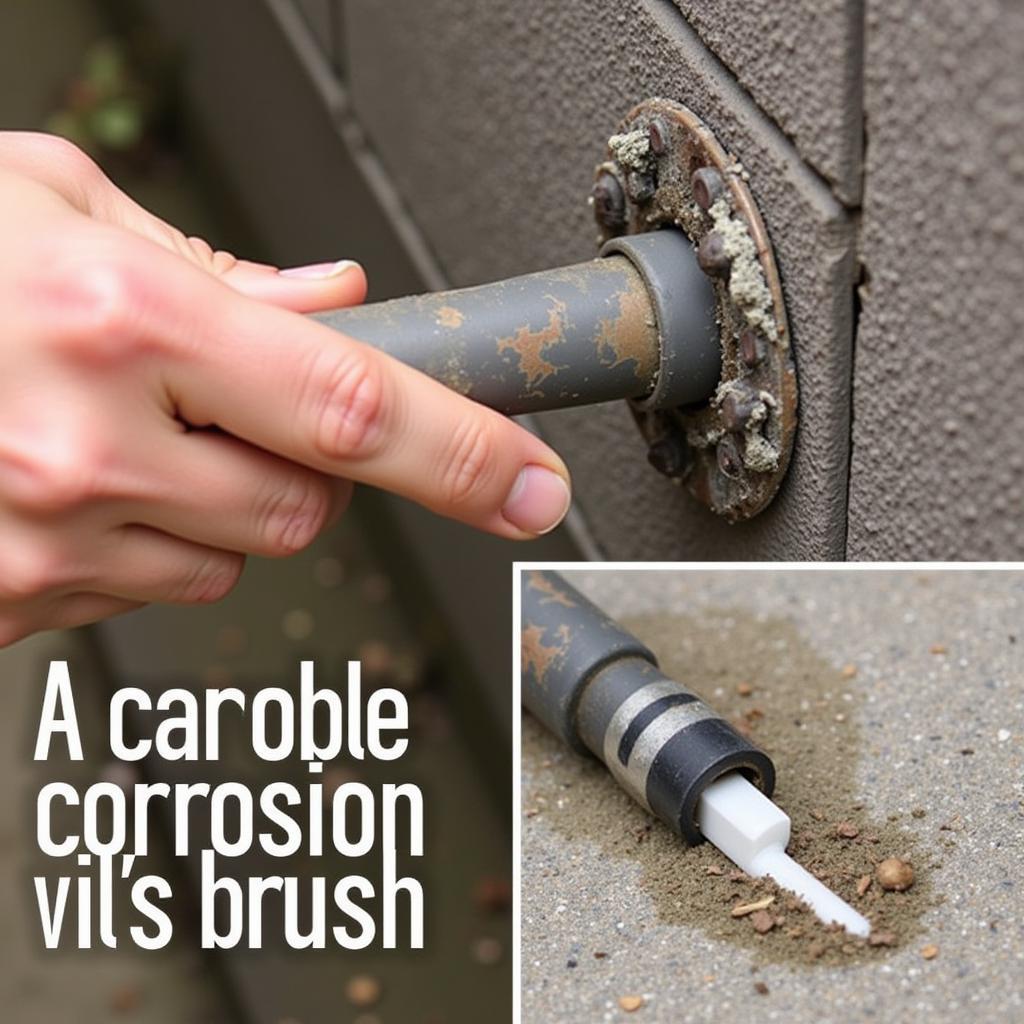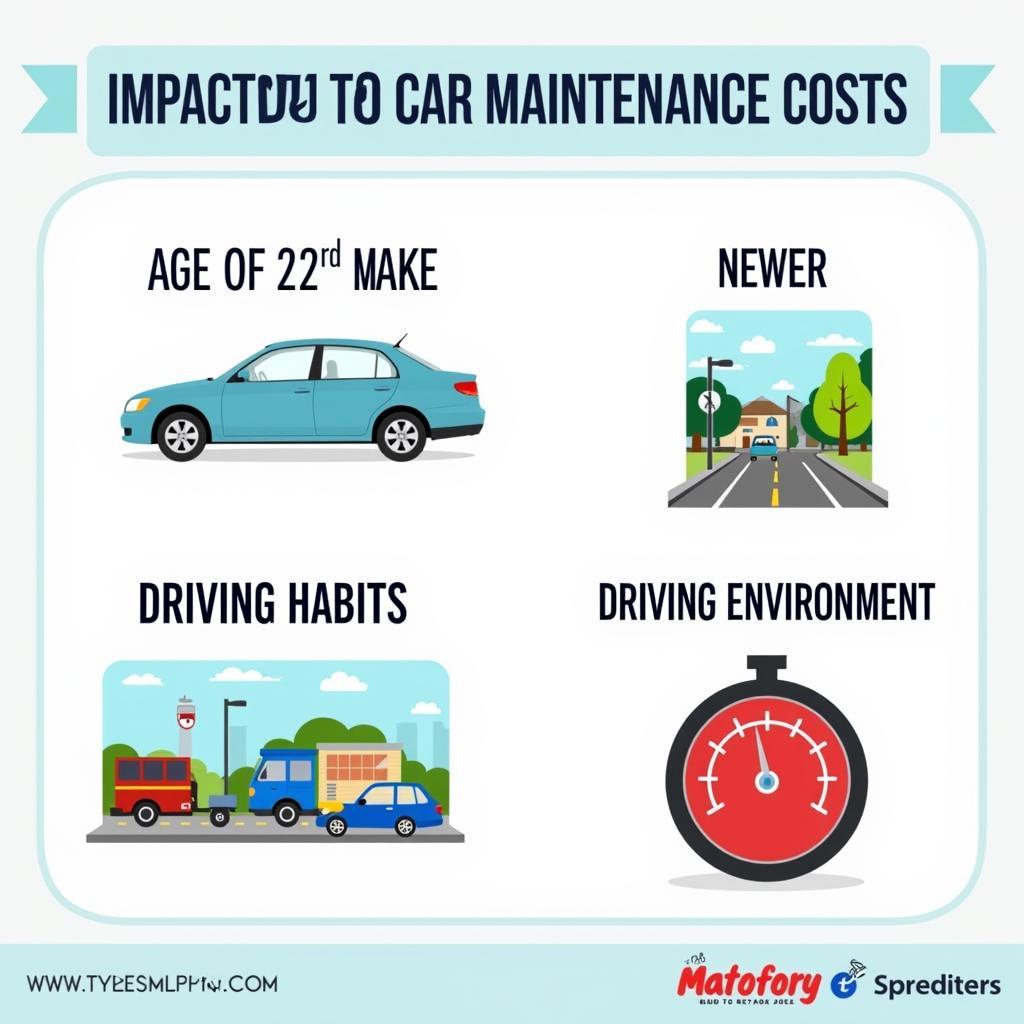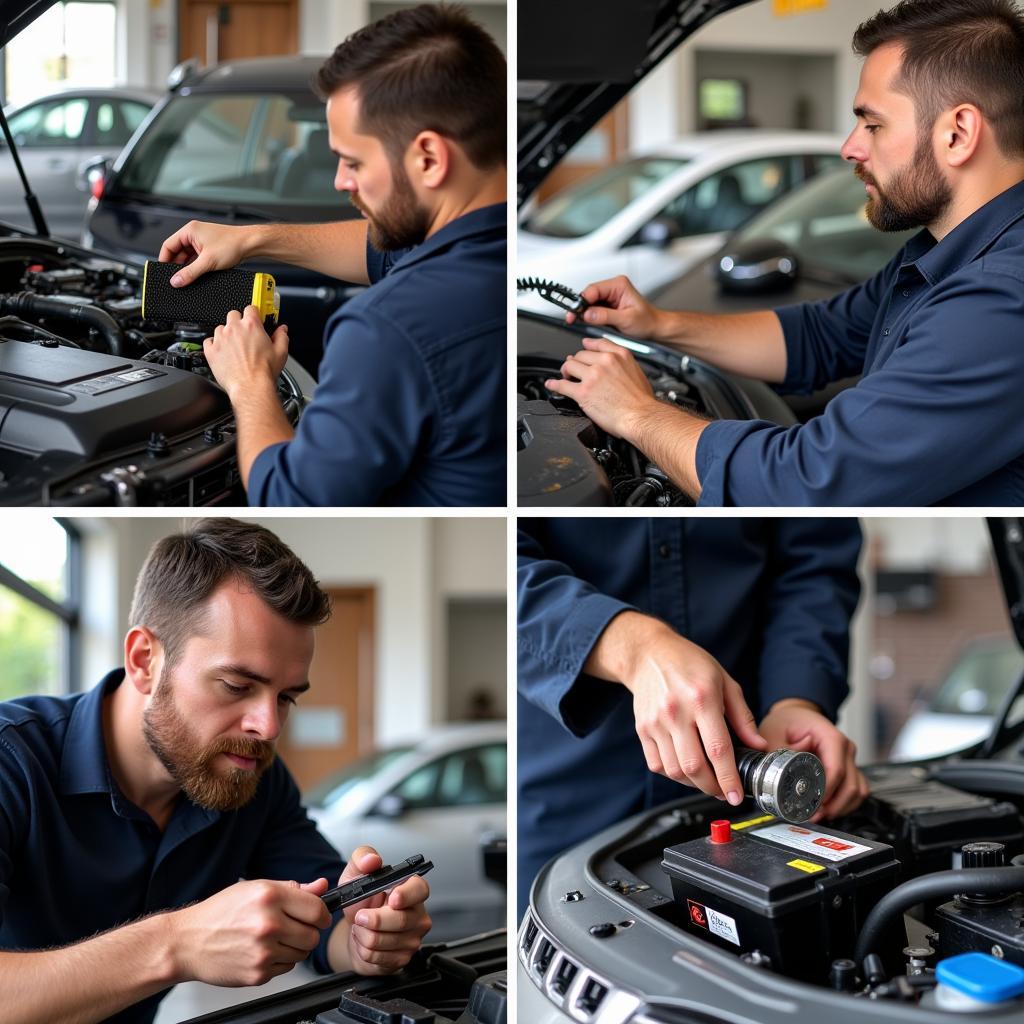Your car won’t start and you suspect a grounding problem? This frustrating situation is more common than you think. In this comprehensive guide, we’ll dive deep into the world of car starting issues stemming from bad grounding, offering you practical advice and solutions.
Understanding the Basics of Car Grounding
A vehicle’s electrical system relies heavily on a good ground connection. The ground completes the electrical circuit, allowing current to flow from the battery to various components, including the starter motor. A car won’t start grounding problem occurs when this connection is compromised. Think of it like a broken link in a chain; the power can’t reach its destination.
Why is My Car Won’t Start Grounding Problem Occurring?
Several culprits can lead to a car won’t start grounding problem. Corrosion is a common enemy, building up on ground connections and disrupting the flow of electricity. Loose or damaged ground straps or cables can also be the source of your woes. Sometimes, the problem lies within the starter motor ground itself.
Diagnosing a Car Won’t Start Grounding Problem
How do you pinpoint a bad ground? A multimeter is your best friend here. Set it to measure resistance (Ohms). Test the connection between the negative battery terminal and the engine block. A high resistance reading indicates a grounding issue. Similarly, check the connection between the engine block and the chassis.
Using a Multimeter to Identify Grounding Issues
Using a multimeter might sound intimidating, but it’s fairly straightforward. Attach one lead of the multimeter to the negative battery terminal and the other to a clean, unpainted metal surface on the engine block. Ideally, you should see a reading close to zero ohms. A higher reading suggests a poor ground.
Fixing the Car Won’t Start Grounding Problem
Once you’ve identified a bad ground, the fix is usually relatively simple. Cleaning corroded connections with a wire brush and applying a protective coating can often restore proper grounding. Replacing damaged or loose ground straps is another common solution.
DIY Grounding Solutions
If you’re handy, you can tackle these fixes yourself. Remember to disconnect the negative battery cable before working on any electrical components. Safety first! Thoroughly clean the contact points and ensure the ground straps are securely fastened.
 Cleaning a Corroded Car Ground Connection
Cleaning a Corroded Car Ground Connection
Preventing Future Grounding Issues
Prevention is always better than cure. Regularly inspecting and cleaning ground connections can prevent future car won’t start grounding problems. Applying a dielectric grease to the connections after cleaning can also help protect them from corrosion.
“Regular maintenance is key,” says Robert Johnson, a seasoned automotive electrician with over 20 years of experience. “Taking the time to inspect and clean your ground connections can save you a lot of headache down the road.”
Importance of Regular Maintenance
Just like changing your oil, checking your ground connections should be a part of your regular car maintenance routine. This simple step can prevent frustrating starting issues and keep your car running smoothly.
“A bad ground can manifest in other ways too, not just starting problems,” adds Johnson. “You might experience dimming headlights or erratic electrical behavior.”
Conclusion
A car won’t start grounding problem can be a frustrating experience. However, by understanding the basics of car grounding, diagnosing the issue, and implementing the right solutions, you can get your car back on the road. Remember, regular maintenance is key to preventing future grounding problems. If you need further assistance, don’t hesitate to reach out to the experts at AutoTipPro. Call us at +1 (641) 206-8880 or visit our office at 500 N St Mary’s St, San Antonio, TX 78205, United States.
FAQ
- What are the most common signs of a bad ground? Starting problems, dimming headlights, erratic electrical behavior.
- How can I test for a bad ground? Use a multimeter to measure the resistance between the negative battery terminal and the engine block.
- Can I fix a bad ground myself? Often, yes. Cleaning corroded connections and tightening loose straps can solve the issue.
- What can I do to prevent future grounding problems? Regular inspection and cleaning of ground connections, along with applying dielectric grease.
- What should I do if I’ve tried everything and my car still won’t start? Contact a qualified automotive electrician for further diagnosis and repair.
- How much does it usually cost to fix a grounding problem? The cost can vary depending on the severity of the issue, but it is often a relatively inexpensive repair.
- Can a bad ground damage other car components? Yes, a prolonged bad ground can potentially damage other electrical components in your vehicle.






Leave a Reply